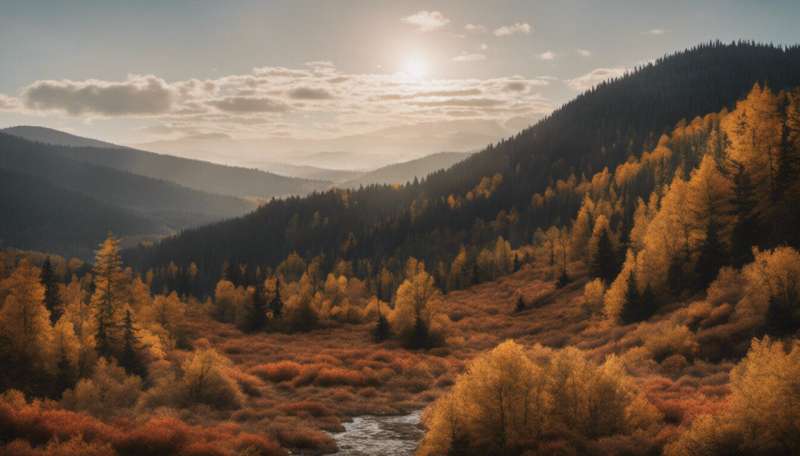Respect for Indigenous knowledge must lead nature conservation efforts in Canada

The past year has taught us important lessons about the consequences of the harm humans are inflicting on the natural world.
We're confronting a , losing species and natural places at an unprecedented rate. We've also experienced the repercussions of nature's decline through COVID-19, whose jump from animals to humans may be linked to . And yet the international community to curb environmental destruction by 2020.
To combat the biodiversity crisis, we need to fundamentally shift our economy and society and make nature conservation the norm. We urgently need a better understanding of how to motivate people, overcome political barriers, influence economies and alter polities to benefit nature.
To guide this change, we need to prioritize , respect Indigenous knowledge holders as experts and acknowledge Indigenous communities as co-creators of solutions.
Canada's role in conservation
, making the country uniquely positioned to make significant contributions to meeting global biodiversity targets.
With vast forests and wetlands that sequester carbon, Canada's environmental policies can have a ripple effect across the entire world. For example, our boreal forests and wetlands store enormous amounts of carbon, and policies that remove protection could have large climate implications.
Canada has a history of taking conservation action—it was the first industrialized nation to commit to meeting conservation targets—and the vast majority of Canadians consider . And yet challenges remain.
Many species are in decline, including iconic Canadian species such as and loons. Canada's economic reliance on natural resource extraction adds difficult dimensions to many decisions.
And Canada's early efforts to protect natural areas dispossessed Indigenous peoples of their land, including the founding of famous parks like and .
There remain significant barriers to the meaningful and rightful participation of Indigenous peoples in conservation.
The need for action
Last year in Ottawa, we brought together many of the country's leading experts in nature conservation—from academia, government, NGOs and Indigenous organizations. We set out to assess the information needed to inform policy and practice for biodiversity conservation in Canada. The consensus was that we need to move from collecting information to mobilizing action.
Our biggest information needs are not facts and figures about plants and animals. We already have much of the information we need for .
Instead, we need to make conserving nature part of everything we do, and we need to do this quickly. A key component of moving from information to action will be working across scientific disciplines—conservation biologists teaming up with data scientists, for example. We live in the information age, where petabytes of information to are generated by social media and community science.
Also, scientists must team up with decision-makers to ensure that the , and policies are based on the best available evidence. Social scientists can play an important role in understanding how to motivate societal change towards widespread nature conservation.
The role of Indigenous peoples
Since time immemorial, Indigenous peoples have lived sustainably in the place now called Canada. Indigenous peoples have unique and diverse ways of knowing and understanding the natural world, and humans' place within it.
Indigenous knowledge systems are shaped by cultural heritage and law, carried by languages and stories, and are tightly linked with a relationship to the land. Colonization attempted to marginalize and extinguish Indigenous ways of knowing.
Yet, . They are typically on the , and lands managed by Indigenous communities tend to be . In addition, Indigenous rights over land and resources are .
Indigenous knowledge systems must play a central role for Canada's nature conservation efforts to be successful. A pathway to working together and embracing multiple worldviews includes the Mi'kmaw principle of : "Seeing from one eye with the strengths of Indigenous knowledges and ways of knowing, and from the other with the strengths of western knowledges and ways of knowing, and learning to use both eyes together, for the benefit of all."
Given the ongoing failure to meet conservation targets and the continued destruction of nature at rates unseen in human history, new approaches are needed. Canada can help lead the way towards nature conservation by focusing on generating societal change and creating more effective action, returning power to Indigenous hands and amplifying Indigenous voices.
Provided by The Conversation
This article is republished from under a Creative Commons license. Read the .![]()



















